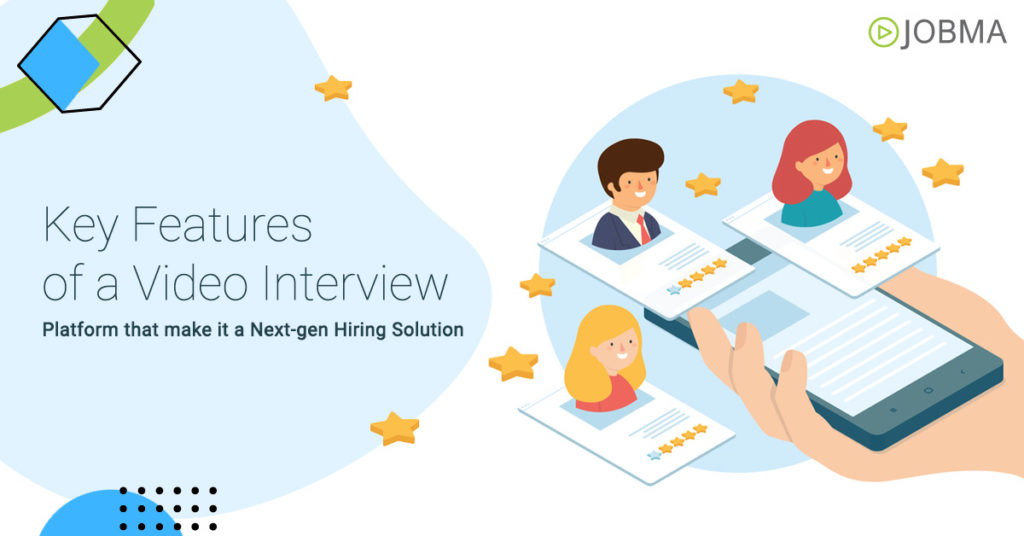Why Video Interviews Are the Future of Recruitment
Video interviews are changing the way companies hire, making the process faster, cheaper, and easier for both employers and job seekers. Traditionally, hiring meant posting a job, scheduling multiple in-person interviews, and spending a lot of time choosing the right candidate. This process could be stressful and time-consuming for everyone involved.
With video interviews, hiring managers can quickly evaluate candidates without the hassle of scheduling or travel. This saves time and resources, while also making the experience more flexible and less stressful for candidates. As technology continues to shape the future of work, video interviews are becoming the preferred way to hire.
Why Video Interviewing is the Recruitment Solution of the Future
Video interviews provide a smarter, quicker way to assess candidates. Here’s how they’re changing the hiring process:
- Remote Flexibility: Video interview platforms let interviewers and candidates connect from anywhere. This makes it easy to tap into talent from around the world, allowing you to interview people in different time zones and locations using a pre-recorded video interviewing feature—without the hassle of travel or taking time off work.
- Less Stress for Candidates: Let’s be honest, interviews can be stressful. Pre-recorded video interviews help take some of the pressure off. Candidates don’t have to worry about being put on the spot in a live interview. Instead, they can record their answers whenever it’s convenient for them, making the process more relaxed and comfortable.
- Breaking Down Language Barriers: In today’s global job market, you might interview candidates from different language backgrounds. Many video interview platforms, like Jobma, offer features such as multilingual support and real-time translation, making it easier to evaluate talent without the worry of language barriers.
- Data-Driven Decisions: Research shows that 65% of hiring managers now use video interview platforms, not only for remote interviewing but also for creating a more structured, data-driven hiring strategy. These platforms provide insights that help you make more informed decisions about who to hire.

Key Features of Video Interview Platforms That Make Them the Future of Hiring
Video interview platforms are really helpful because it makes the hiring process faster and easier. Video interviewing software has lots of features that help you find the right candidate more quickly and make better decisions. Here’s how they work:

1. Eliminate Travel Hassles and Costs
Video interviews save you time and money by eliminating the need for travel. With platforms like Jobma, you can record interview questions once, and candidates can answer them whenever it’s convenient for them. No more worrying about scheduling conflicts or travel expenses—everything is done remotely and efficiently. Plus, you can easily share feedback, scores, and notes with your team, all from wherever you’re working.
If you’re hiring from anywhere in the world, this becomes even more helpful. You can review candidates from different countries without worrying about travel and expenses. This makes it much quicker and cheaper to assess global talent—often in half the time it would take with traditional methods.
2. Hire Faster and More Effectively
Video interviewing platforms make your hiring process faster and more efficient by adding AI automation. You can screen lots of candidates at once and quickly narrow down the best ones. You can filter applicants based on their qualifications, experience, and how they answer pre-recorded questions—without waiting for them to come in for an in-person interview.
For candidates, this streamlined process allows them to apply to and interview with multiple companies more efficiently, increasing their chances of finding the right opportunity quickly. By incorporating video interviews early in the hiring process, you can swiftly identify top talent, narrow your pool of candidates, and make well-informed decisions with greater ease.
3. Foster Data-Driven Recruitment
One of the biggest benefits of video interviews is that they help you collect and use data to make smarter hiring decisions. These platforms often have features like scoring systems, customizable evaluation criteria, and candidate analytics.
For example, Jobma has a dashboard where you can track how well recruiters are doing and use data to improve your hiring process. By organizing candidate information and feedback, you can review applicants more clearly and make decisions based on real data, not just your gut feeling.
4. Improve the Quality of Hire
In traditional interviews, it’s easy to overlook important details or let unconscious bias affect your judgment. Video interview platforms help solve this by letting you review recorded interviews, compare candidates, and make sure you’re being fair and consistent in your evaluations. This means you can focus on skills, experience, and answers, without the pressure of taking notes or being distracted during the live interview.
Being able to go back and compare interviews helps you make the best, most unbiased decision, leading to better hires overall.
Is Your Recruitment Process Ready for the Future?
Are you still relying on traditional, outdated methods of hiring? If so, you could be wasting valuable time and resources, and missing out on the best candidates. It’s time to embrace the future of recruitment with video interviewing platforms.
By adopting Jobma’s video recruiting software, you can streamline your hiring process, attract top talent from around the world, and make better hiring decisions faster. Don’t get left behind—transform your recruitment strategy today with cutting-edge video interview technology.

FAQs
Why are video interviews becoming the future of recruitment?
Video interviews are revolutionizing the hiring process by providing a faster, more cost-effective, and flexible solution for both employers and candidates. They eliminate the need for travel, streamline scheduling, and make it easier to assess candidates from anywhere in the world. With features like pre-recorded interviews, AI automation, and data analytics, video interviews enable companies to make smarter, quicker hiring decisions.
How do video interviews improve the hiring process for employers?
Video interviews save time and resources by allowing hiring managers to evaluate candidates remotely, without needing to schedule multiple in-person interviews. The ability to review recorded interviews means employers can compare candidates, make data-driven decisions, and hire faster. Additionally, features like customizable evaluation criteria and candidate analytics help create a more structured and objective recruitment process.
What are some key features of video interview platforms?
Key features of video interview platforms include:
- Remote flexibility: Interview candidates from anywhere, at any time.
- Pre-recorded interviews: Candidates can respond to questions at their convenience, reducing stress.
- AI and automation: Quickly screen and filter candidates based on qualifications and responses.
- Multilingual support: Overcome language barriers with translation features.
- Data-driven insights: Use scoring systems, feedback sharing, and candidate analytics to make informed hiring decisions.
- No travel costs: Eliminate the need for in-person interviews and the associated expenses.
What is the role of AI in video interviewing?
AI plays a key role in automating parts of the recruitment process, from screening resumes to analyzing candidate responses in video interviews. Some video interview platforms use AI to assess candidates’ facial expressions, voice tone, and speech patterns to help evaluate their fit for the role. AI can also help employers filter candidates based on predefined criteria, speeding up the process of identifying top talent.



